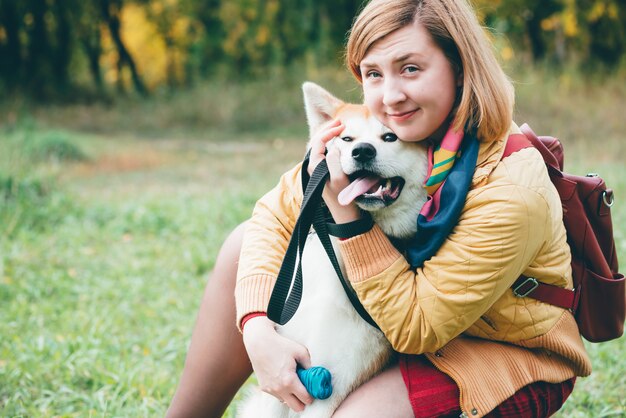Introduction
Pets are more than just animals—they are cherished companions, loyal friends, and family members. For many of us, they hold a special place in our hearts as Very Important Pet (VIP). These VIPs enrich our lives in countless ways, bringing love, joy, and a sense of purpose. Whether it’s a playful pup, an affectionate cat, or even a talkative parrot, they deserve our utmost care and attention to ensure their well-being.
This blog will walk you through everything you need to know about caring for your very important pet. From understanding their unique needs to fostering mental stimulation, ensuring proper veterinary care, and creating an enriching environment, we’ll also explore the incredible emotional bond between pets and their owners. Plus, we’ll share heartwarming stories showing just how much of a positive impact VIPs can have on our lives.
Understanding the Needs of Your Very Important Pet
Caring for a very important pet goes beyond the basics of food, water, and shelter. These companions come with unique physical, emotional, and mental health needs. Ensuring these needs are met is essential for their happiness and longevity.
The Right Diet
A balanced and nutritious diet is critical to keeping your VIP healthy. Different pets require specific diets based on their age, breed, activity level, and health conditions. For example:
- Dogs and Cats need high-quality pet food with balanced protein, fat, and vitamins.
- Rabbits and Guinea Pigs thrive on fresh hay, leafy greens, and Vitamin C-rich vegetables.
- Birds benefit from species-specific seeds, nuts, and fruits.
Avoid giving your pets “people food” like chocolate, onions, or alcohol, as these can be toxic for most animals. Consult your veterinarian to create a diet tailored to your pet’s needs.
Daily Exercise and Mental Enrichment
Just like humans, pets require physical and mental stimulation to lead happy lives. For instance:
- Dogs love long walks, games like fetch, and agility training.
- Cats enjoy interactive toys, scratching posts, and high perches to explore.
- Small animals like rabbits can benefit from tunnels and chew toys, while birds thrive with climbing perches and foraging activities.
Providing mental challenges, like puzzle toys or training exercises, can help prevent boredom and unwanted behaviors in any pet.
The Importance of Veterinary Care
Regular check-ups with a trusted veterinarian are a non-negotiable aspect of responsible pet ownership. Timely vaccinations, dental cleanings, and preventive treatments for fleas, ticks, and worms can save your VIP from health complications.
Even if your pet appears healthy, annual or biannual vet visits are essential for detecting underlying issues early. For aging pets, more frequent visits may be required to manage age-related illnesses like arthritis or diabetes.
Investing in pet insurance can help cover unexpected medical expenses, giving you peace of mind while ensuring access to quality care for your furry, feathery, or scaly companion.
Creating a Safe and Enriching Environment for Your VIP
Your pet’s home environment plays a huge role in their overall well-being. Here’s how you can create the perfect haven for your VIP:
Safety First
Pet-proof your home by removing hazards like toxic plants, exposed wires, and small objects that could be swallowed. For outdoor pets, ensure fences are secure to prevent escapes while protecting your pet from predators.
Comfort and Enrichment
Provide a comfy place for your VIP to relax—whether it’s a cozy bed for your dog or a perch near the window for your cat. To keep your pet engaged:
- Rotate toys regularly to spark curiosity.
- Introduce new activities, like hide-and-seek for dogs or laser pointer games for cats.
- Consider setting up an obstacle course or building a DIY climbing area for extra fun.
How VIPs Improve Our Emotional and Mental Well-Being

Very important pets do more than just keep us company—they profoundly impact our emotional and mental health. Studies show that having a pet can reduce stress, lower blood pressure, and combat feelings of loneliness.
VIPs provide unconditional love and emotional support, often becoming a lifeline during tough times. Many therapy animals, whether dogs, horses, or even cats, have helped countless people recover from trauma, grief, or mental health challenges.
Building a Strong Bond with Your Pet
To deepen the connection with your VIP:
- Spend quality time together through play and cuddles.
- Use positive reinforcement to build trust during training sessions.
- Learn to recognize subtle signs of their moods and needs to respond appropriately.
The stronger your bond, the more enriching your relationship will be—for both you and your pet!
Celebrating Success Stories of Very Important Pets
Here are a few inspiring stories that showcase the unbreakable bond between VIPs and their owners:
- Max the Rescue Dog
Max, a rescued border collie, helped his owner Sarah cope with her anxiety. His boundless energy encouraged her to stay active and take daily walks, transforming her mental and physical health for the better.
- Mittens the Therapeutic Cat
Mittens, an affectionate tuxedo cat, brought joy to a nursing home.
- Buddy the Parrot
Buddy, a colorful macaw, played a vital role in teaching Tim’s children about responsibility. From daily feeding to cleaning his cage, Tim’s kids developed strong interpersonal skills while enjoying Buddy’s playful antics.
These stories remind us of the lasting joy and impact VIPs can bring to our lives if we care for them well.
Lifelong Companions and Joyful Journeys
A very important pet is more than just an animal—they’re lifelong companions who enrich every aspect of our lives. By meeting their unique needs, providing regular care, and nurturing your bond, you can ensure they live full, happy lives while bringing immense joy to your own.
Your VIPs rely on you for love and care. Start today by implementing these tips, and watch your very important pet thrive like never before.
Meta Data
Meta Title
How to Care for Your Very Important Pet
Meta Description
Discover tips and advice on how to care for your very important pet, including their diet, exercise, veterinary care, and emotional well-being.

